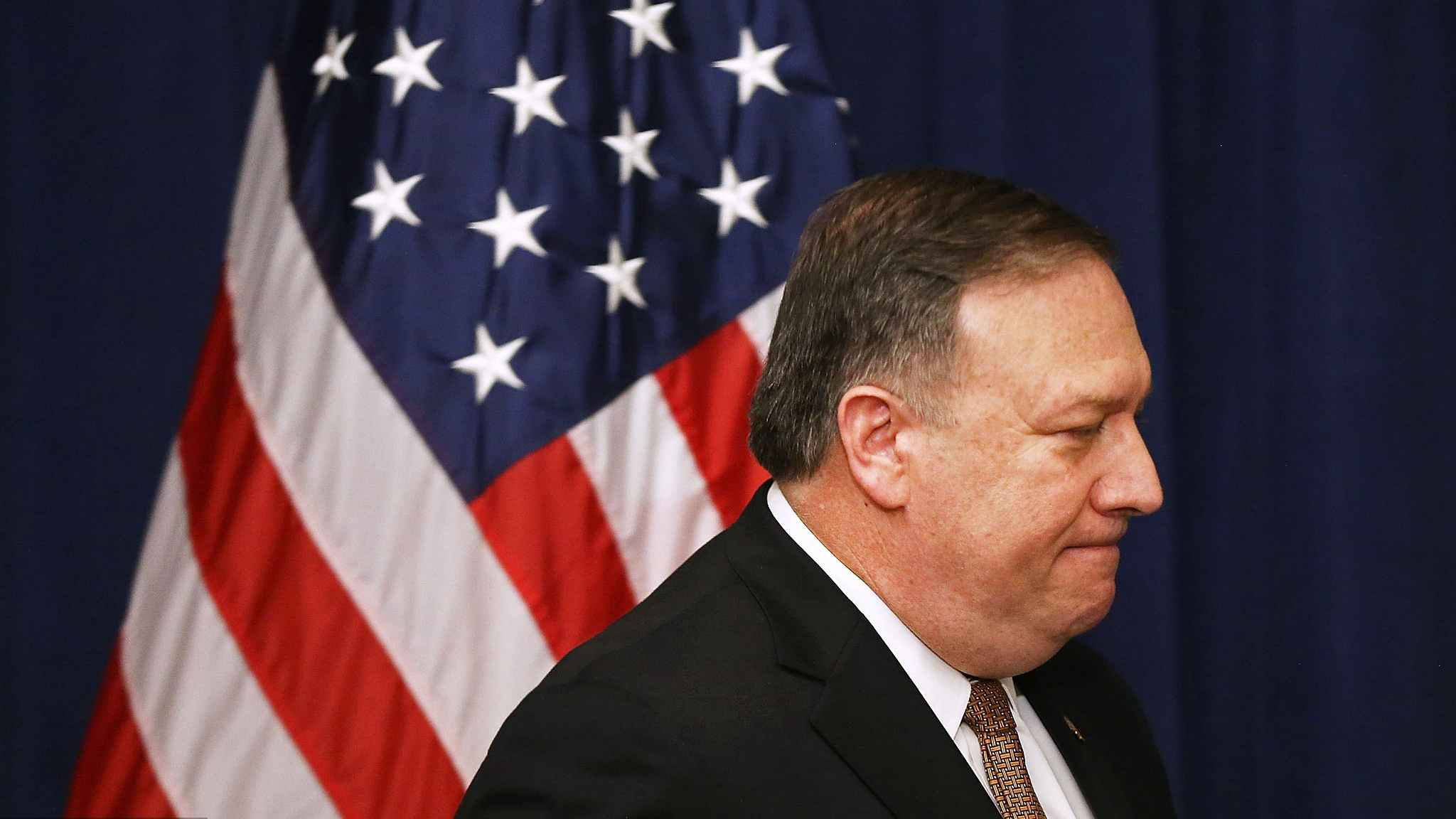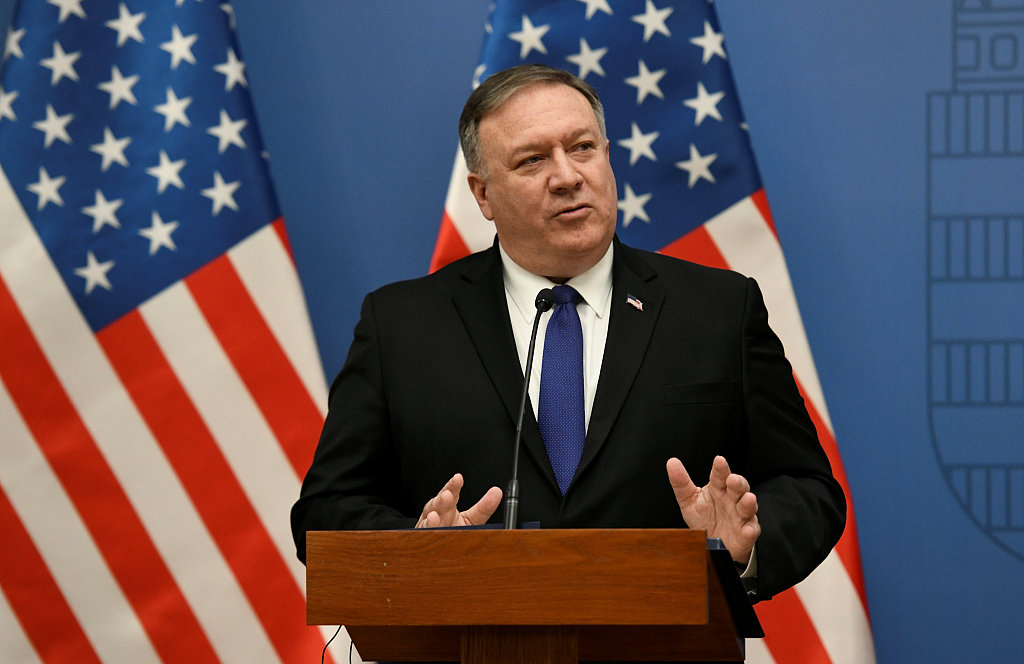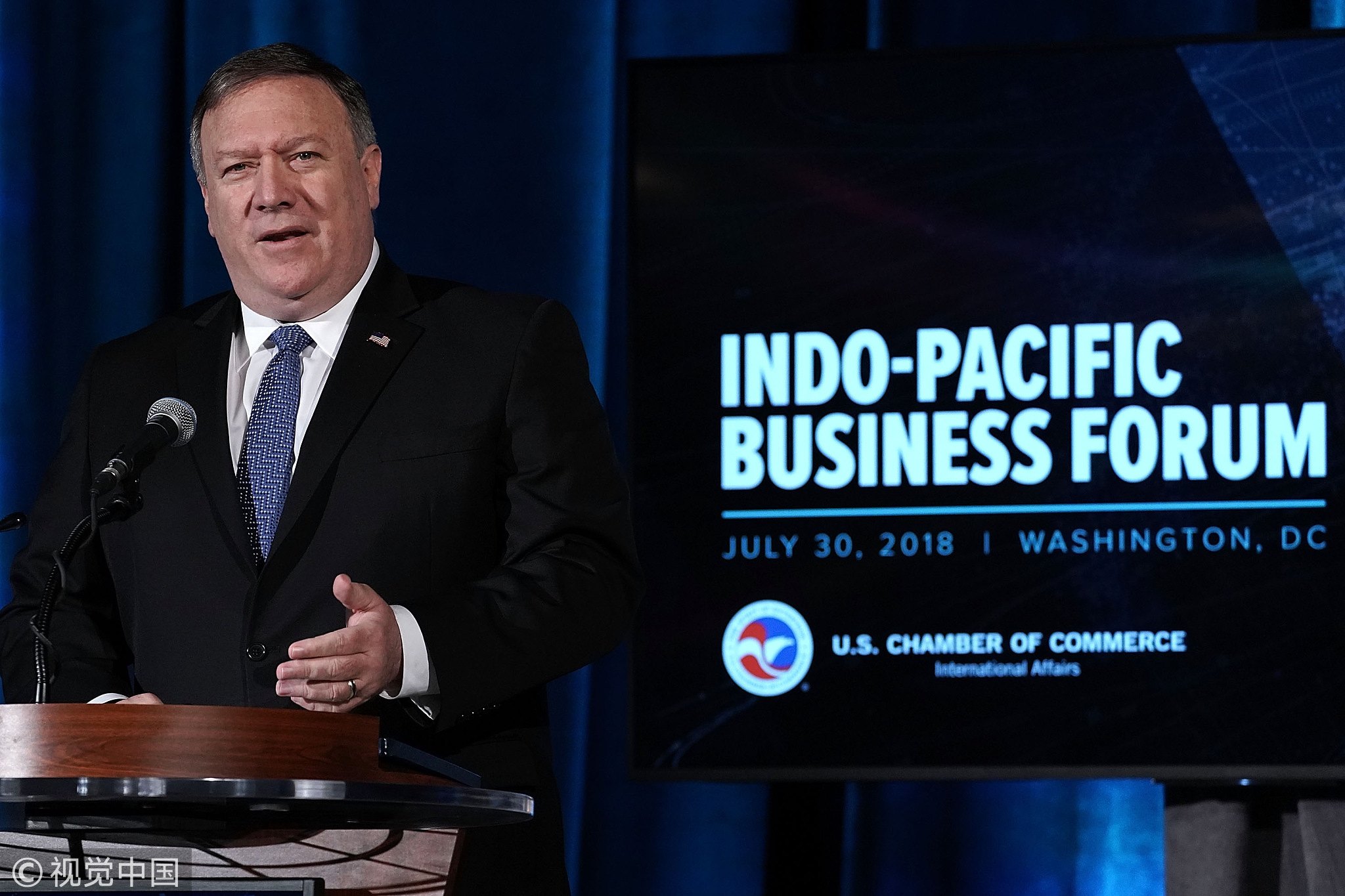
Analysis
23:09, 06-May-2019
Pompeo's promotion of America First policy to likely fail
Zhao Yuanzhen

U.S. Secretary of State Pompeo is heading to Europe, and countering China's influence in the Arctic region and Huawei's 5G development in the UK would most likely be on top of his agenda.
One of the most important stops of his four-nation Europe tour is Finland, where he will hold a meeting with ministers of the Arctic council to discuss issues like climate change and resource allocations.
"His visit has a context," said Liu Feitao, a research fellow at the Department for American Studies, China Institute of International studies.
Liu cited pentagon's latest report on China's armed forces, where the U.S. has expressed concerns over China's increasing role in the polar region. Russian President Vladimir Putin's remarks that he would like to see the integration of China's maritime Silk Road and Northern Sea Route also raised as an alarm with the United States.
Pompeo is also likely to push back climate policy favored by northern European countries and discuss Venezuelan political crisis with Russia.
In all, Liu summarized this as another trip to push Trump administration's America first policy.

Mike Pompeo during a news conference in Budapest, Hungary, February 11, 2019. /VCG Photo
Mike Pompeo during a news conference in Budapest, Hungary, February 11, 2019. /VCG Photo
But the prospects of Pompeo's agenda seem rather bleak given the worsening EU-U.S. ties under Trump presidency, since he's determined to rewrite the international rulebook in his own way. It seems that the future of the good old EU value has only become bleaker. But is Trump the only one to blame in the face of a deteriorating relationship among the once golden allies? Perhaps the cracks have been there for a long time now and Trump has only accelerated the process.
Sometimes the most efficient way to make friends is to have a common enemy. In the case of the EU and the U.S., it was fascism during WWII and then the Soviet Union during the Cold War.
But with the disintegration of the Soviet Union and the fall of the Berlin Wall, the common threat that had shaped the foundation of EU-U.S. alliance was gone. As Europe recovered from the war loss, it showed the will to be independent from America's absolute authority. Faced with a post-war era, both have their own understanding in how to achieve prosperity and peace, and their paths did not overlap or even collapse.
Even during the popular Obama period, his Asia-Pacific strategy and Syrian policy caused discontent among European countries. Feeling left out in the U.S. foreign policy, Europe is struggling to find an independent identity without America's influence as they realize that Trump's America First policy is hurting their own interests, Liu pointed out. And this has been reflected in occasions like Iran deal, tariffs on European goods and withdrawal of American forces from Syria.

Mike Pompeo speaks during the Indo-Pacific Business Forum at the U.S. Chamber of Commerce, Washington, July 30, 2018. /VCG Photo
Mike Pompeo speaks during the Indo-Pacific Business Forum at the U.S. Chamber of Commerce, Washington, July 30, 2018. /VCG Photo
In fact, it seems that Europe and the U.S. were never "values-based" allies in terms of foreign policy.
European values of mechanisms, institutions and multilateralism in diplomacy were never coherent with America's unilateralism hegemony. Europe has learned its lessons on how nations can cooperate and weave their interests together as a whole, while the American pride as the most powerful nation state are instinctively in conflict with EU's value system.
U.S. National Security Adviser John Bolton has already declared his dislike for the EU when he claimed in an article that EU's efforts in economic integration is "tinged with a discernible anti-Americanism" as it craves to be a global power that equals to the United States.
It is interesting to note that Boltan's attitude perhaps also explains partly the attitude of the EU and the U.S. when it comes to China.
It is without doubt that the U.S. has recognized China as the most important competitor and has started to block China on different frontiers. Bolton's hostility against the EU is anxiety to hold on to America's supreme position. For the U.S. it is bound to be a zero-sum game with China as it would never give up the throne without putting up a fight but the EU does not share this anxiety with its allies. The EU has more practical concerns in terms of economic cooperation with China, especially in the view of the current Brexit saga.
Perhaps French President Emmanuel Macron's remarks ahead of Chinese President Xi Jinping's tour to Europe best summarize Europe's attitude toward China: "The reality is the world has changed significantly, China is not the country it once was, and we are dealing with a very major partner."
Although Europe's suspicions regarding China cannot be eliminated in a short time, but it has refused to follow America's suit of becoming China's rival. The good old European faith in multilateralism remains alive, but it needs a new approach.
(If you want to contribute and have specific expertise, please contact us at opinions@cgtn.com.)

SITEMAP
Copyright © 2018 CGTN. Beijing ICP prepared NO.16065310-3
Copyright © 2018 CGTN. Beijing ICP prepared NO.16065310-3